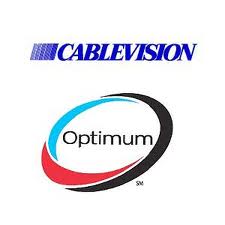 Hurricane Sandy’s destructive forces of wind and water, combined with extensive electrical outages has wreaked havoc with telecommunications services from Maine to Virginia, leaving some customers potentially without service for weeks.
Hurricane Sandy’s destructive forces of wind and water, combined with extensive electrical outages has wreaked havoc with telecommunications services from Maine to Virginia, leaving some customers potentially without service for weeks.
The storm has flooded Verizon‘s central switching offices in New York City, did extensive damage to Sprint’s wireless network and infrastructure, has left large sections of upstate and downstate New York without cable service, and clocks ticking for wireless cell customers using cell sites currently running on battery backup power.
Some of the worst problems are affecting Verizon’s landline and FiOS networks after the company lost two critical switching centers in Manhattan to extensive flooding. That has contributed to significant problems for Verizon customers across Manhattan, Queens, and Long Island. Further afield, Verizon customers without service can blame power outages and fallen trees that took out overhead wiring. Together, Verizon customers are experiencing significant problems with landline, broadband, and FiOS TV and Internet services in some areas.
Many Verizon Wireless cell sites are operating on battery backup units which maintain service for only a limited time. New York, New Jersey and Connecticut customers report increasing difficulty maintaining cell service signals as those battery backup units start to fail. Verizon engineering crews can restore undamaged cell sites with backup generators once permitted into storm-ravaged areas.
Cablevision‘s business largely depends on areas that took a direct hit from Hurricane Sandy. Cablevision repair crews are encountering extensive power outages and damaged overhead wiring brought down during the storm in Connecticut and Long Island. Its service area closer to New York City has been primarily affected by power outages. Comcast said it was still starting an assessment process and was not prepared to report on the current state of its network, which operates in cities north and south of the New York City metro area.
While Time Warner Cable spokesman Alex Dudley reports little damage to Time Warner Cable’s systems, many remain offline from power interruptions, and Time Warner’s Twitter feed for upstate New York reports isolated outages in Portland, Maine and across upstate New York, primarily due to power losses or damage to infrastructure.
Sprint appears to be the hardest hit wireless carrier with widespread service outages, interruptions and call completion issues throughout the states of New York, New Jersey, Connecticut, Pennsylvania, Washington DC, Maryland, North Virginia and New England. Some customers far away from the worst-hit areas report trouble making and receiving calls on Sprint’s network. Many cell sites are also damaged.
AT&T is assessing damage to its landline operations in Connecticut, where it is the dominant phone company. Many AT&T cell phone sites, like Verizon, are operating on battery backup in power outage areas until AT&T can bring generators online to maintain service.
T-Mobile and MetroPCS report damage and service outages to their cellular networks as well, mostly from power outages.
Even old style communications networks were not spared from Hurricane Sandy. The Northeast Radio Watch reports a large number of broadcasters across the region off the air as of this morning:
- Outside of WOR (710), most New York City area AM stations are off the air. WOR survived the storm with its recently built three tower site located just above the flood waters. Chief engineer Tom Ray told NERW the water is 10 feet deep at WOR’s transmitter site in the Meadowlands. Many AM stations in New York favor transmitter locations in now-ravaged Lyndhurst and the Meadowlands. The result: indefinite absence of all-news WINS (1010) (it’s now back up — thanks to an update from Scott Fybush), which is now being heard on WXRK (92.3). Also missing: WLIB (1190), WSNR (620), WMCA (570), WNYC (820), WPAT (930), WNYM (970), WADO (1280) and WWRV (1330). FM outlets favor much higher transmitter locations, usually atop large skyscrapers, that escaped flood damage.
- WABC continues to air the audio portion of its broadcast on WEPN-AM (1050) and FM (98.7) for the benefit of those without power. WCBS studios are currently powered “by candlelight.”
- The Jersey shore’s FM outlets are mostly silent. Atlantic City was among the hardest hit, and some stations may be off the air for some time while rebuilding.
- Connecticut stations are also off the air. Powerhouse WICC (600) in Bridgeport has transmitters on Long Island Sound — a poor choice to withstand Sandy. It is likely underwater. Also gone: WGCH (1490 Greenwich), WAXB (850 Ridgefield) and WSHU (1260 Westport) and WALK-FM (97.5 Patchogue).
Repair crews for all concerned will likely only start assessing damage later today, but many will have to wait for power crews to complete work — they have first priority. Those lucky enough to see service restoration once power returns will be in far better shape than others who could wait weeks to get their Internet, television and phone service back.
Correction: Original story included reference to studio power knocked out at WOR-TV. That should have said WOR-AM (radio).


 Subscribe
Subscribe











